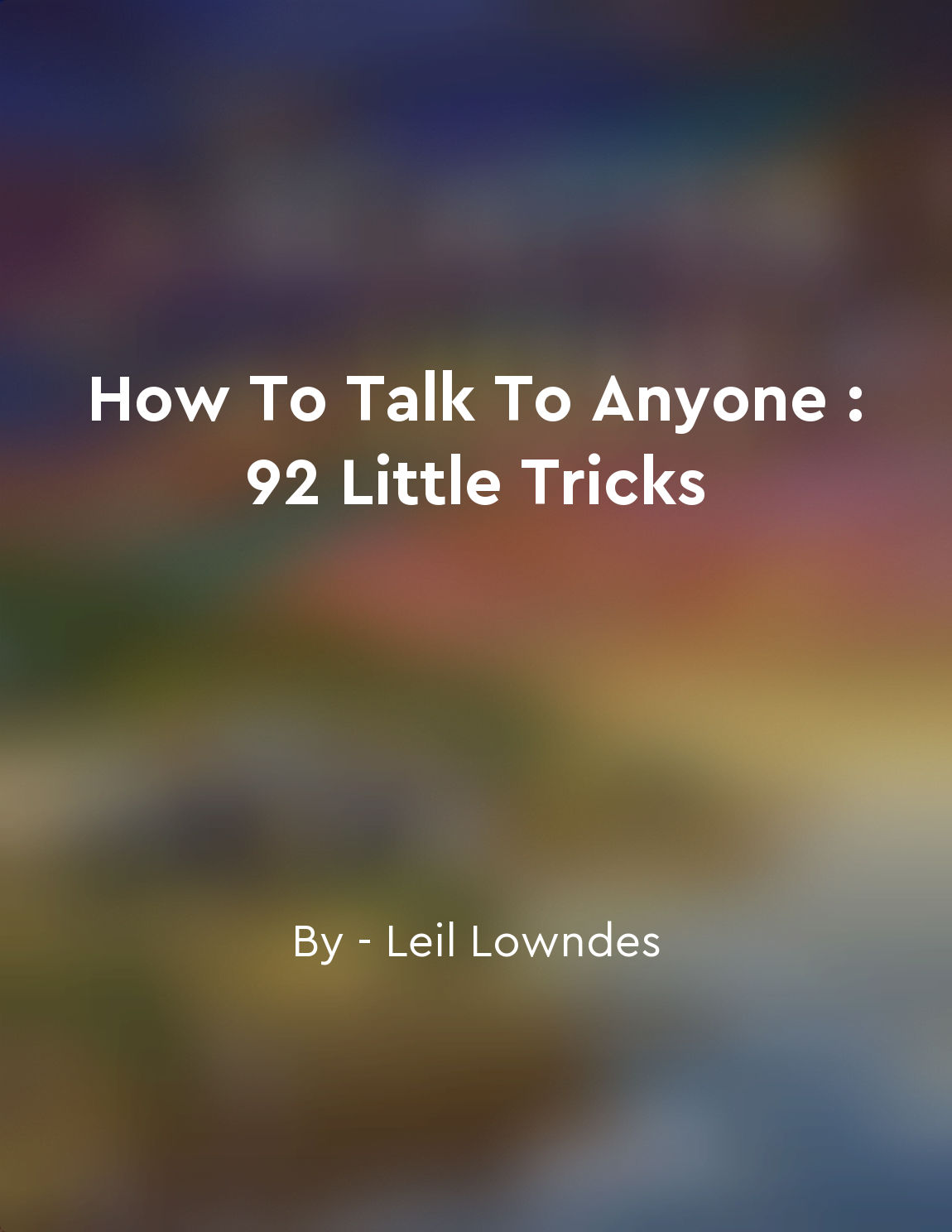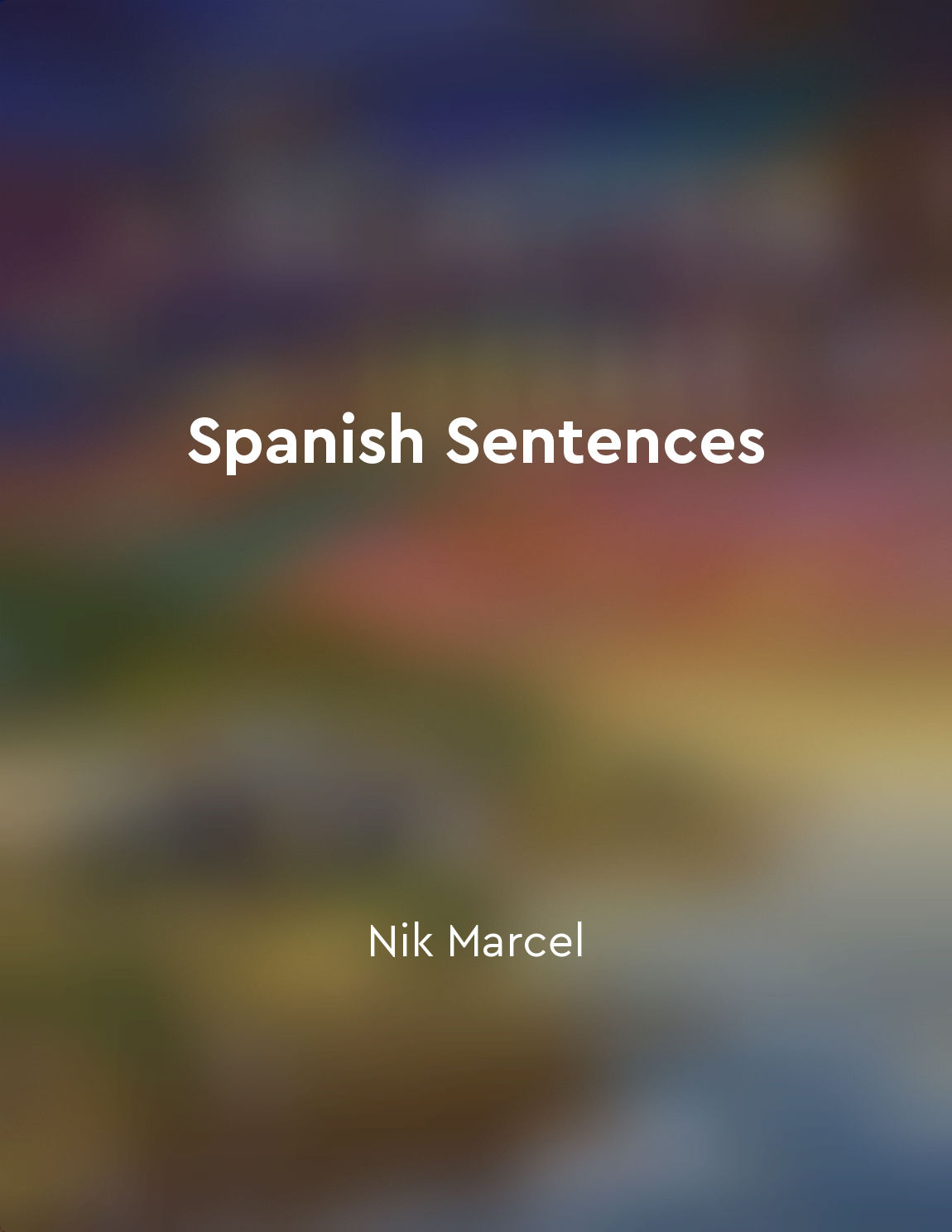Discussing hobbies and interests from "summary" of Easy Spanish Phrase Book NEW EDITION by Pablo Garcia Loaeza
When getting to know someone in Spanish, it's important to discuss hobbies and interests. This is a great way to make a connection and find common ground with others. To start a conversation about hobbies, you can simply ask, "¿Cuáles son tus hobbies?" which means "What are your hobbies?" This question allows the other person to share what they enjoy doing in their free time. After asking about hobbies, you can follow up with questions like "¿Qué te gusta hacer en tu tiempo libre?" which means "What do you like to do in your free time?" This question gives the other person a chance to talk about their interests and favorite activities. You can also ask, "¿Practicas algún deporte?" which means "Do you play any sports?" This question can lead to a discussion about physical activities and sports that the other person enjoys. When discussing hobbies and interests, it's important to show genuine interest and ask follow-up questions. For example, if someone mentions that they enjoy painting, you can ask, "¿Qué tipo de pintura te gusta hacer?" which means "What type of painting do you like to do?" This shows that you are engaged in the conversation and want to learn more about the other person's hobbies. In addition to asking questions, you can also share your own hobbies and interests. This can help to create a more dynamic conversation and build a stronger connection with the other person. For example, you can say "Me encanta leer libros" which means "I love to read books" or "Disfruto cocinar en mi tiempo libre" which means "I enjoy cooking in my free time." By sharing your own hobbies, you can find common interests and create a more meaningful conversation.- Discussing hobbies and interests is a great way to connect with others and learn more about their passions and pastimes. By asking questions, showing genuine interest, and sharing your own interests, you can have engaging conversations that help you get to know someone better. So don't be afraid to ask about hobbies and interests – you never know what you might have in common with someone else.
Similar Posts
The connection between language, culture, and economic success
The intricate relationship between language, culture, and economic success is a fundamental concept that shapes the modern worl...
Be authentic and genuine in your interactions with others
Being authentic and genuine in your interactions with others means being true to yourself and expressing your thoughts, feeling...
Vocabulary for discussing music and entertainment
To effectively communicate about music and entertainment in Spanish, it is crucial to have a strong vocabulary. This includes k...

Practice gratitude and acknowledge others' contributions
One of the most powerful ways to build rapport with others is to show gratitude and acknowledge their contributions. When we ex...
Be a good listener and encourage others to talk about themselves
The ability to listen attentively and show a genuine interest in others is a fundamental aspect of building strong relationship...
Understand nonverbal cues
To truly understand nonverbal cues, we must pay close attention to the subtle messages that are being conveyed through body lan...

Engage with diverse Spanishspeaking communities
To truly connect with Spanish-speaking communities, it is essential to engage with a diverse range of people. This means reachi...

Direct and indirect objects in Spanish change the meaning of sentences
The presence of direct and indirect objects in Spanish can significantly alter the meaning of a sentence. These objects play a ...
Continuous learning is key to mastering spoken English
To truly master spoken English, one must commit to a process of continuous learning. This means more than just memorizing vocab...
Provides insight into the nuances of the language
This collection of short stories has been carefully crafted to help beginners deepen their understanding of the Spanish languag...

